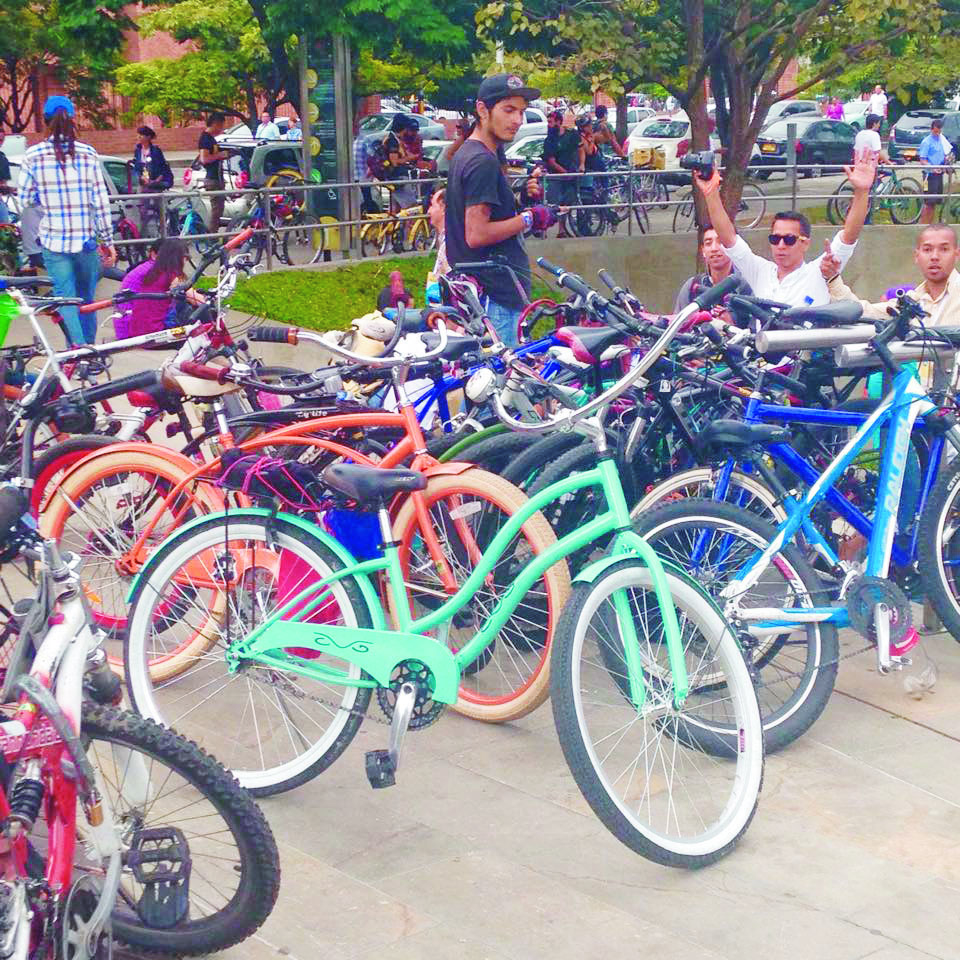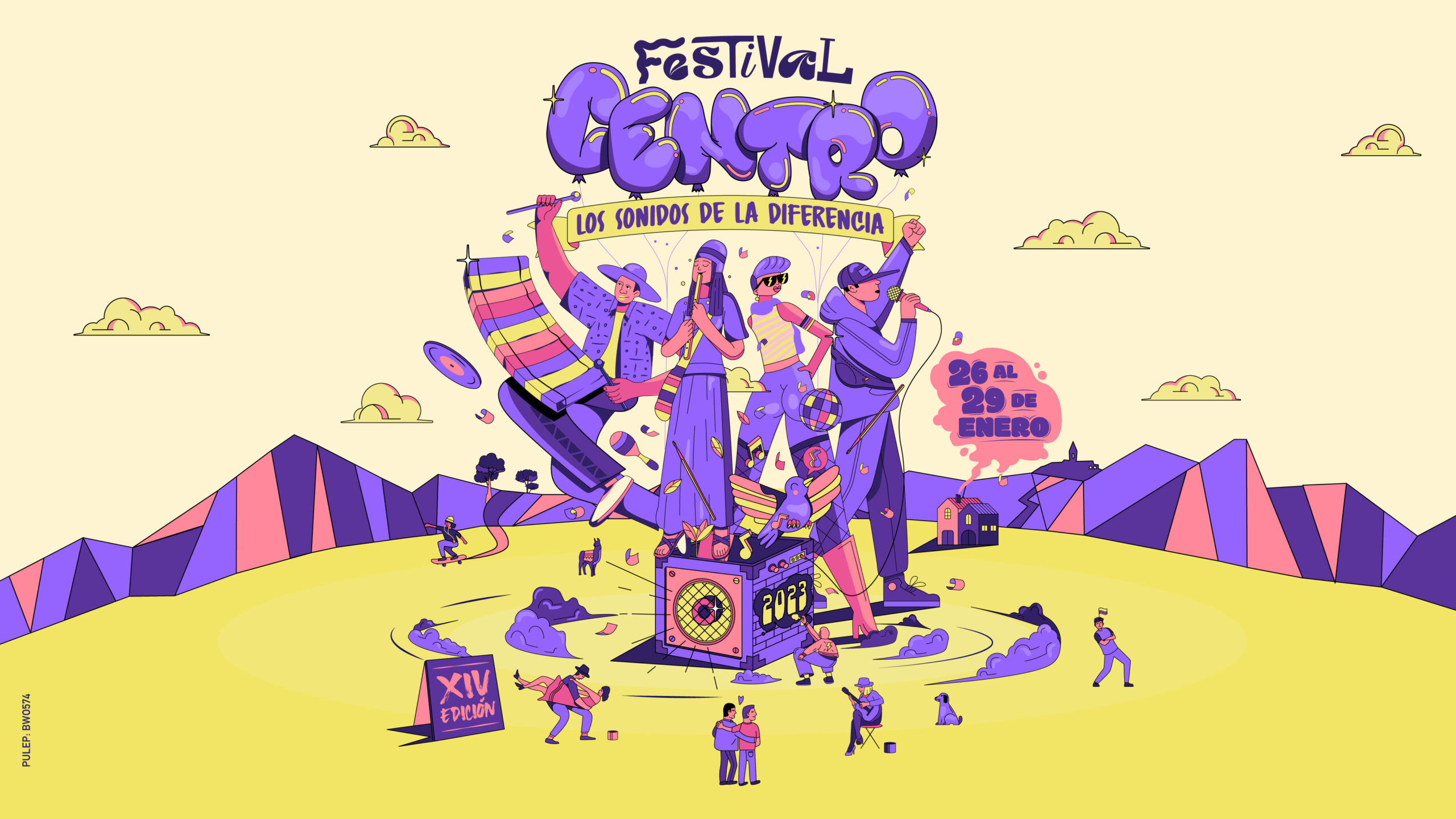
Cyclists gathering for the beginning of the World Bicycle Forum in Medellin
Kate Brunette covers the World Bicycle Forum, held in Medellin, for The Bogota Post
Four thousand cycling enthusiasts rolled up to the fourth annual World Bicycle Forum last week. The event, held in Medellin from February 26 to March 1, began in Brazil in 2012 as a protest against cycling deaths. Medellin was this year given the honour of being the first city outside of Brazil to host, and in a demonstration of the best of cycling culture, the city played host to a democratic, entirely voluntary forum.
Since the forum began four years ago, people have been coming from all over the world to attend and share their views, although Latin American attendees and presentations naturally made up the largest share of visitors. While many cyclists in Bogota may feel that urban innovation in the capital has stagnated, inspiring speakers and organisers called upon citizens to take action and spur change in their cities.
Keynote presentations highlighted Bogota’s innovations in urban cycling, with speakers including Jaime Ortiz, the founder of the ciclovía, and visionary Bogota mayors Enrique Peñalosa and Antanus Mockus. The latter pair spoke about their experiences transforming Bogota in the late 90’s and early 2000’s from a car-dominated city to a world innovator in bus rapid transit and urban cycling. In a moving opening-night speech, Peñalosa stated his belief that bicycles are revolutionary machines which promote equality in cities and that building a bicycle-friendly city “shows that a citizen on a bicycle of COP$30,000 is as important as a driver of a car of COP$30,000,000”.
Although the forum was anchored by big-name speakers such as the former mayors, the real stars of the show were the next generation of Colombian cycling advocates. It was Carlos Cadena Gaitán, founder of the La Ciudad Verde sustainable urbanism collective in Medellin, who fought to bring the event to Colombia and organised an all-volunteer group of young cycling activists to plan and execute it. Local cycling advocates also presented on panels and led workshops, making their dedication to creating a cycling culture in Colombia clear.
Among these workshops was an all-female forum named Ciudades para todas, led by Andrea María Navarette, founder of Mujeres Bicibles in Bucaramanga. This forum focused on women’s bicycle advocacy, with other female bicycle collectives from around Latin America sharing their ideas and experiences of promoting cycling among women. Bogota-based organizations Despacio and Ciudad Humana also presented on panels regarding global cycling perspectives and the history of cycling in Latin America.
Despite the diverse range of attendees and topics under discussion, three key themes emerged from this year’s forum: promoting equity in urban planning, changing cycling paradigms from recreation to transportation and the importance of civil society in creating change. The headline of the conference was “Ciudades para todos” and the majority of speakers emphasised the bicycle as a tool for improving equity in cities.
Jaime Ortiz asked why we have constructed cities for cars when the majority of citizens rely on public transportation. Enrique Peñalosa took it a step further by challenging cities to ban private cars during rush hour every day, instead prioritising mass transit and cycling. Panellists from countries as far afield as China and Kazakhstan debated bicycling culture in their home countries and asked: how can cities promote bicycling as a daily means of transportation rather than an occasional recreational activity?
Some speakers believed they had the answer to this question, emphasising the crucial importance of expanding bicycle infrastructure in making cycling more mainstream. Guillermo Dietrich from the Secretary of Transportation in Buenos Aires argued that only a very small fraction of cyclists will ride in all weather conditions. In a rainy city like Bogota, expanding infrastructure is thus absolutely necessary, through schemes such as ciclorutas, bike parking facilities, bike-share systems and bike lanes on the road. All of these have a critical part to play in making the average rider feel safe in choosing the bicycle as a means of transportation, according to the speakers.
But it’s not just up to local and national governments to create a cycling culture. Discussions and workshops such as “Top-down vs. Bottom-up” focused on the power of citizens to promote cycling. In Curitiba, Brazil, citizen-led efforts to paint bike lanes and plant trees led to government investment in permanent infrastructure investments, and we have seen the same in Bogota on Av. 85. Attendees were given a chance to see this concept in action when, on the final day of the forum, organisers helped Medallo residents create a parklet and paint a new crosswalk in the downtown area.
Another constant theme of the forum was Bogota’s leadership on cycling initiatives. With four hundred kilometres of ciclorutas, Bogota leads all Latin American cities, including Sao Paulo, which is twice its size. Additionally, the Sunday ciclovía in Bogota is the most popular in the world, registering over a million participants each week.
However, despite all the positivity there is still work to do. Bogota has lagged in recent years in adding new infrastructure, and the ciclorutas are much less impressive in reality than on paper. The World Bike Forum will hopefully provide new inspiration to urban activists to lobby Petro for continued investment in promoting cycling. Only time will tell if that comes to pass or whether, as its critics say, this forum is all wheels, no traction.
Want more bicycle news? Read all about the 2015 Bogota BikeFest here.
By Kate Brunette





